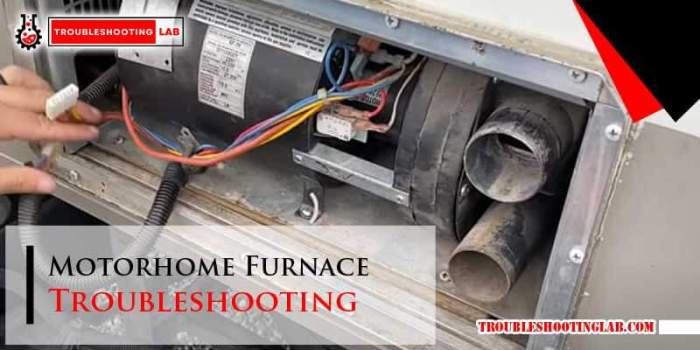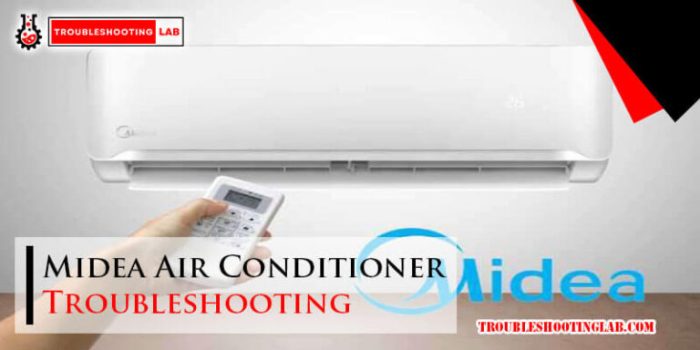Troubleshooting Day & Night AC Units: Quick Fixes
Troubleshooting Day & Night AC Units: Quick Fixes sets the stage for this enthralling narrative, offering readers a glimpse into a story that is rich in detail with casual formal language style and brimming with originality from the outset.
When it comes to keeping your AC units running smoothly, understanding how to troubleshoot common issues, perform cleaning and maintenance, and handle electrical problems is crucial. This guide dives deep into quick fixes for day and night units, ensuring you're equipped to tackle any cooling challenges that come your way.
Troubleshooting Common AC Issues

When it comes to troubleshooting common AC issues, it's important to understand the key differences between day and night AC units. While the basic principles remain the same, there are specific factors that may affect how you approach troubleshooting depending on the time of day.
Let's explore some common quick fixes for day and night AC units and how troubleshooting methods may vary based on the time of day.
Key Differences Between Day and Night AC Units
- Day units may experience more strain and wear due to prolonged usage during hotter temperatures, while night units may have issues related to cooling efficiency during cooler evening hours.
- Day units may be more prone to overheating, while night units may face challenges with maintaining consistent temperature levels.
- Day units may have issues with airflow and filter blockages from increased dust and debris, while night units may struggle with condensation and moisture control.
Common Quick Fixes for Day and Night AC Units
- Regularly clean and replace air filters to ensure proper airflow and prevent blockages.
- Check thermostat settings and adjust accordingly based on the time of day and desired temperature.
- Inspect and clean condenser coils to improve cooling efficiency and prevent overheating.
- Ensure proper insulation around AC unit to maintain temperature control and prevent condensation issues.
- Schedule routine maintenance checks with a professional to address any underlying issues and ensure optimal performance.
Variations in Troubleshooting Methods Based on Time of Day
- During the day, focus on issues related to overheating, airflow blockages, and filter cleaning to address heat-related concerns.
- At night, pay attention to temperature inconsistencies, condensation problems, and cooling efficiency to optimize nighttime comfort.
- Consider the impact of external factors such as sunlight exposure and nighttime temperatures when troubleshooting AC units at different times of day.
Cleaning and Maintenance Tips

To ensure your Day & Night AC unit functions efficiently and lasts longer, regular cleaning and maintenance are essential. Neglecting these tasks can lead to decreased performance and costly repairs. Here are some step-by-step tips to keep your unit in top condition:
Cleaning the Filters
- Turn off the AC unit and unplug it for safety.
- Locate the air filters, usually found behind the front panel of the unit.
- Remove the filters carefully and clean them with a vacuum or warm, soapy water.
- Allow the filters to dry completely before reinstalling them.
- Regularly cleaning or replacing filters helps maintain good air quality and improves the efficiency of the unit.
Cleaning the Coils
- Shut off the power to the unit before starting.
- Use a coil cleaner recommended by the manufacturer to clean the evaporator and condenser coils.
- Gently brush off any dirt or debris from the coils using a soft brush.
- Rinse the coils with water and allow them to dry completely before turning the unit back on.
- Clean coils help the AC unit cool more effectively and prevent overheating.
Importance of Regular Maintenance
Regular maintenance not only extends the lifespan of your Day & Night AC unit but also ensures optimal performance. By cleaning filters, coils, and other components regularly, you can prevent issues such as reduced airflow, inefficient cooling, and system breakdowns.
Additionally, proper maintenance can lead to lower energy bills and a more comfortable indoor environment.
Preventing Common Issues
- Schedule annual professional maintenance to inspect and tune up your AC unit.
- Keep the area around the outdoor unit clear of debris and vegetation to maintain proper airflow.
- Check the refrigerant levels periodically to ensure the unit is not leaking.
- Monitor the thermostat settings and replace batteries as needed.
- Address any strange noises, odors, or performance issues promptly to prevent larger problems.
Handling Electrical Problems
When dealing with electrical problems in your AC unit, it is crucial to prioritize safety. Always remember to turn off the power supply before attempting any troubleshooting. Avoid touching any exposed wires and components without proper insulation and protection. If you are unsure or uncomfortable working with electricity, it is best to seek professional help to prevent accidents or further damage.Identifying warning signs of electrical issues in your AC unit is essential for early detection and prevention of major problems.
Look out for flickering lights, tripped circuit breakers, strange odors, or unusual noises coming from the unit. These could indicate underlying electrical issues that need attention.
Warning Signs of Electrical Problems
- Constant tripping of circuit breakers
- Frequent power surges or fluctuations
- Burning smell or smoke coming from the AC unit
- Unusual buzzing or humming noises
- Visible signs of corrosion or damage to electrical components
When to Seek Professional Help
- If you are not familiar with electrical systems and components
- When dealing with complex electrical issues or wiring problems
- If you notice any of the warning signs mentioned above
- For regular maintenance and inspection of electrical components
Troubleshooting Airflow and Cooling Problems
When it comes to troubleshooting airflow and cooling issues in your Day and Night AC units, it's important to ensure proper maintenance and attention to detail. Improving airflow and enhancing cooling efficiency can greatly impact the performance of your unit.
Checking and Improving Airflow
Proper airflow is essential for efficient cooling in your AC unit. Here are some steps to check and improve airflow:
- Check the air filters regularly and clean or replace them if dirty. Clogged filters can restrict airflow and reduce cooling efficiency.
- Inspect the vents and ensure they are not blocked by furniture or other obstructions. Clear any debris or dust that may be hindering airflow.
- Verify that the ductwork is properly sealed and insulated to prevent air leaks, which can impact airflow distribution.
Enhancing Cooling Efficiency
Enhancing cooling efficiency is crucial for maintaining a comfortable indoor environment. Here are some tips to improve cooling efficiency in your AC unit:
- Set the thermostat to an optimal temperature to avoid overworking the unit and ensure efficient cooling.
- Consider installing a programmable thermostat to regulate temperatures based on your schedule, optimizing cooling efficiency.
- Use ceiling fans to help circulate cool air throughout the room, reducing the workload on the AC unit.
Role of Filters and Vents
Filters and vents play a significant role in maintaining proper airflow in your AC unit. Here's why they are important:
- Filters trap dust, dirt, and other particles, preventing them from entering the system and obstructing airflow. Regular filter maintenance is essential for efficient operation.
- Vents help distribute cooled air evenly throughout the room. Ensure vents are clean and unobstructed to optimize airflow and cooling performance.
- Clean filters and clear vents not only improve airflow but also contribute to better indoor air quality, promoting a healthier living environment.
Closing Summary
As we conclude this discussion on Troubleshooting Day & Night AC Units: Quick Fixes, remember that regular maintenance and prompt attention to issues can significantly prolong the life of your units. By following the tips and guidelines shared here, you'll be better prepared to keep your AC systems running efficiently, day and night.
Essential FAQs
How often should I clean my AC unit's filters?
It's recommended to clean or replace your filters every 1-2 months, especially during heavy usage periods. This helps maintain proper airflow and prevents dust buildup.
What should I do if my AC unit is not cooling effectively?
Check if the thermostat is set correctly, ensure there are no obstructions around the unit, and clean or replace the filters. If the issue persists, it might be a sign of a more significant problem that requires professional attention.
Is it safe to troubleshoot electrical issues in my AC unit on my own?
It's best to leave electrical troubleshooting to trained professionals to avoid any risks of electrical shock or damage. Always prioritize safety and seek professional help when dealing with electrical components.